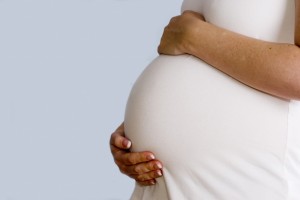
It is just common sense to keep pregnant women out of jail, who are waiting for their court date. Jails, unlike prisons, hold defendants waiting for their day in court, or defendants sentenced to less than 12 months for misdemeanors (minor charges). A bill to protect pregnant inmates was borne (bad pun) in Cook county in 2017. Kelly Cassidy, Illinois State Rep., filed a protective bill, after she heard about Karen Padilla.
Ms. Padilla , 7 months pregnant, was brought before Judge Ford for a minor traffic violation. The judge revoked her bond on a pending theft case, and she was incarcerated. Eventually, she was released because of the Cook County state’s attorney’s office. The state’s attorney argued it was not appropriate to lock her up, in light of the circumstances (minor charges).
The state’s attorney, Eric Sussman stated, “Having three kids myself, I know it is a critical, critical period for a child to be with his or her mom…I was shocked that this was going on, particularly for a nonviolent, low-level offender who was essentially pulled over for having a nonfunctioning headlight.”
The bill has passed the Illinois legislature, and is waiting for the Governor’s signature. The bill orders judges to find a non-incarceration alternative such as, electronic monitoring–at home, or placement in a drug treatment facility, or release on personal bond.
Between April 2016–May 2017, the Cook County jail held more than 300 pregnant inmates waiting for trial. Seventeen gave birth, while incarcerated.
Depending on the jurisdiction, what actually happens to an incarcerated woman giving birth, can be devastating for the mother, and the baby. During the last fifteen years, only twenty one states have enacted regulations restricting shackling during labor and post-delivery recuperation. The American Medical Association in a 2010 resolution called the practice of shackling pregnant inmates unsafe, medically dangerous, and “barbaric.” Many physicians and nurses assert that shackling pregnant inmates during any stage of the pregnancy is damaging to the pregnant mothers and their babies. Shackling restricts the pregnant mother from moving in order to manage the pains of labor and birth. Shackling can aggravate birthing risks which include: pre-eclampsia (a condition causing a pregnant woman to have high blood pressure), premature birth, and increased risk of falls that could seriously injure the fetus.
Opponents have argued that a pregnant inmate can try to escape from the hospital, and injure a member of the medical staff, during the attempt. However, states that have restricted shackling of pregnant prisoners do not have any record of women in labor trying to escape.
We need common sense and decency to have true jail–prison reform.
“The degree of civilization in a society can be judged by entering its prisons.”
Fyodor Dostoyevsky
By:Bradley Schwartz
Founder of prisonpath.com
Prison Consultant
Leave a Reply